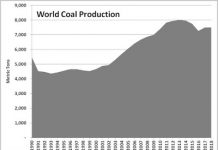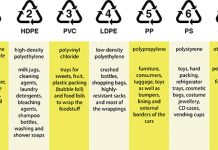Whether you agree it’s because of human activity or not (and, for the record, I do), there’s no doubt that the weather has been a little wacky over the past few years, driving a range of events that have had very real repercussions on businesses and the economy. Hurricane Katrina is one obvious example, but there have also been other, more subtle cases. Many ski resort operators in North America, for instance, were beginning to believe that winter would never arrive on the eastern side of the continent. In the west, we’re now being told that cold weather may have jeopardized a large part of California’s orange crop. Several businesses, from golf courses to gas utilities, can be materially impacted by the vagaries of the weather. If you do believe that climate change is indeed an anthropogenic phenomenon, and thus that we’re only beginning to feel its impacts, you also probably believe that businesses will increasingly need to find ways to hedge their exposure to weater-related risks. That is where Weather Bill comes in. The new company, which was discussed in a Red Herring article yesterday and profiled on CNBC’s Closing Bell tonight (video), offers weather hedging contracts for businesses. In a nutshell, if you get hurt by bad weather (e.g. too much rain over your golf course = lower revenues), this triggers a payout and you are compensated for some of your loss. If the sun shines (over your golf course), you loose all of your money. Insurance majors have been in the business of offering similar products for a while. Various forms of weather risk-hedging mechanisms allowing firms to tap straight into the liquidity of financial markets have also emerged over the past few years. So-called cat bonds are a good example. What Weather Bill will add to this space, as far as I can tell, is accessibility for smaller players who don’t necessarily have the means and/or the saavy to effectively play the weather markets, as they are called. There isn’t really an immediate investment angle here, but I thought our readers would enjoy the heads up on some of the business opportunities that are arising in response to climate change. To conclude this post, Jim Jubak over at TheStreet.com wrote an interesting article entitled “Turn a Profit From Global-Warming Stocks“. The title says it all! Have a read. Digg This






Interesting you should publish this one day after your CTL piece… the climate risk is the biggest downside I see to coal to liquids. While Peak Oil fuels CTL, Climate legislation which deals with well-to-wheels footprint of the fuel will work against it. Both CTL and Tar Sands petroleum are even more carbon intensive than conventional petroleum, and as carbon is taken into account, this could be a real problem for these fuels. So if you want to buy CTL, you may be wise to hedge your climate risk as well…
2 things on this:
1) There is great scope for CTL to be made “cleanly” (i.e. carbon capture). I spoke to Rentech last summer, for instance, and they confirmed that carbon capture was going to be a feature of their 1st main facility. CTL with carbon capture produces a synthetic diesel that burns much much cleaner than conventional gasoline and the GHGs are captured. The difference between CTL and the tar sands, as far as I can tell, is that there is far less scope to make tar sand oil into a clean burning liquid fuel…so I don’t think they can be compared because with CTL much of the damage control can be done at the front end of the process. Tar sands are filthy the whole way through.
2) The CTL industry is probably not one of those industries that will be affected by a wacky climate. So no, I wouldn’t see a need to hedge a CTL investment for weather risks. The main risk that I see is regulatory, and that is why carbon capture is critical, at least in the US. You are right, CTL produces vast amounts of CO2, and with the prospects of federal regulations looming, CTL w/o carbon capture could spell massive stranded costs.